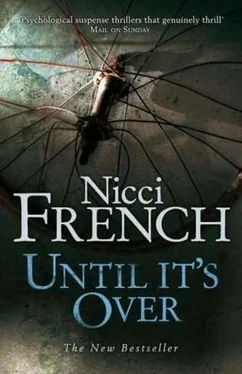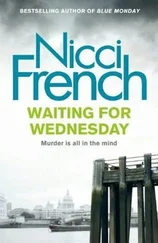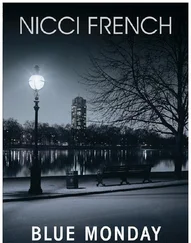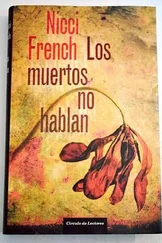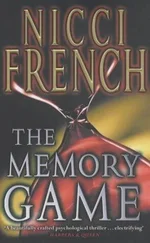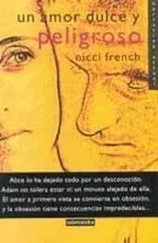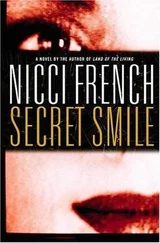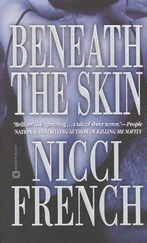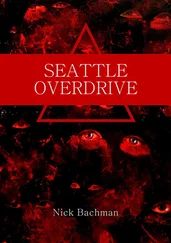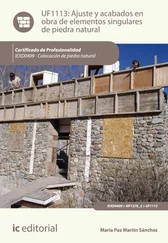I sighed and took the phone from him.
‘Hello?’
‘Is that Astrid Bell?’ A man’s voice that I didn’t recognize: gravelly, self-assured, with a slight American drawl.
‘Yes,’ I replied warily.
‘My name is William Hamilton.’
For a moment my mind was blank.
‘I’m sorry, I…’ And then I remembered. Ingrid’s father. I felt a rush of emotion and took a deep breath. ‘I’m so terribly sorry for your loss.’
‘I’d like to meet you.’
‘I understand why, of course, but you should know there’s nothing really that I can -’
‘With my son-in-law, Andrew de Soto,’ he cut in. Then: ‘Please, Miss Bell. We won’t take up too much of your time.’
‘Of course I’ll meet you,’ I said, although it was the last thing in the world I wanted. ‘When’s good for you?’
And so it was that at three o’clock that afternoon I found myself walking into the foyer of a tasteful, expensive hotel in Covent Garden – so tasteful and expensive that the doorman didn’t blink at my Lycra shorts and stained top, but took my bike pannier and helmet from my sweaty grip and ushered me politely into a side room where the two men were sitting, a tray of tea things on the low table between them that remained untouched throughout our meeting.
‘Ms Bell,’ said William Hamilton, rising to his feet. He was a tall, burly man, with thick white hair, ferocious silver eyebrows over bloodshot eyes, and liver spots on the back of his hands. He wore a dark suit that had probably cost more than all the clothes I owned put together, but he didn’t seem to notice my outfit, shaking my hand firmly and gesturing me to an armchair. ‘Thank you for coming.’
Andrew de Soto was much smaller than his father-in-law. With wiry greying hair, cut short, and pouches under his eyes, he wasn’t at all the kind of man I would have imagined with Ingrid. He looked dazed, exhausted, and I noticed that his white shirt was buttoned wrongly,
‘I wish there was something I could do to help,’ I said lamely.
‘We realize, of course, that you have given your statement to the police,’ said William Hamilton, ‘but because you were the person to find…’ He stopped. I saw his large hands grip the chair arms. ‘You were the person who…’
‘Yes,’ I said. ‘I was. I came to collect the package.’
‘The package. Yes. I know that. The package that wasn’t.’ He scrutinized my face, then carefully cracked the knuckles on both his hands. ‘I’m a wealthy man, Ms Bell.’
I didn’t know what to say to that, so remained silent. Across from me, Andrew de Soto gave a single sharp cough.
‘Ingrid was my only child,’ he continued. ‘I will spare no expense to catch the person who killed her.’
‘What are you saying?’
‘Saying? Nothing. Nothing.’ He leaned forward. ‘What do you know, Ms Bell?’
‘Nothing,’ I said despairingly. ‘I didn’t know your daughter, Mr Hamilton. I never talked to her. I was just a messenger. It could have been anyone else who found her. It was chance that it was me. I saw her lying on the floor, I called nine-nine-nine, I smashed the window. That’s all. I can’t imagine what you must be going through, but there’s nothing I can tell you that the police haven’t told you already and nothing I know that you don’t.’
He rubbed his face with his hands. ‘It seemed important to see you, yet why? What did I expect to discover?’
‘Did she look peaceful?’ This was from Andrew de Soto.
I cast him a confused glance. Didn’t he know that his wife had been brutally murdered? Hadn’t they told him how her face had been slashed?
‘Yes,’ I muttered. ‘She did.’
‘Excuse me for one moment,’ said William Hamilton. He heaved himself out of his low armchair and made his way towards the lavatories.
As soon as he was out of the room, his son-in law leaned forward in his chair, jolting the low table. ‘She was having an affair,’ he whispered.
‘What?’
‘She was having an affair.’
‘Listen, I don’t know anything about that. Really. You have to tell the police and -’
‘I don’t have proof. Don’t you think I’ve searched for it? But I’m not stupid. I know.’
‘I’m sorry,’ I said. It seemed to be the only phrase left in my vocabulary.
‘And now someone’s killed her.’
Later I told the house about the meeting, but I wished I hadn’t. It made it sound somehow darkly funny, when it wasn’t at all.
It was my favourite time of year, late May, then early June, with the leaves fresh and bright on the trees, the sky a clear blue, the evenings long and soft and warm. I hated being unable to enjoy it properly. A whole part of my life seemed to be coming to an end, and coming to an end in a sour and messy way. Sometimes I would come home and not even go into the house, but retreat at once to the garden, where my vegetables were pushing their way up, sappy little shoots lying in neat rows along the plot I’d spent so many hours digging and weeding. And it was out here, four days after Kamsky’s visit, that I heard yet more noise erupting from the house. I laid down my trowel, wiped my hands along the grass to clear off the worst of the soil, and listened, trying to make out what was going on. At first I assumed it was one household member yelling at another, but I didn’t recognize the voice and couldn’t make out many of the words – just an obscenity here and there.
Then Davy emerged from the kitchen and made his way up the garden. He looked tired. ‘What on earth’s going on?’ I asked.
‘I think Pippa might need you,’ he said.
I ran down the side alley to the front of the house. The ‘fucks’ grew louder and I could make out other words, like ‘How dare you?’, ‘interfering’, ‘spiteful’ and ‘ball-breaking’. At first I didn’t recognize him because he was standing at the top of the steps that led up to the front door and I couldn’t see his face, though I could see Pippa’s, on the other side of the door, looking shocked but defiant. But something about his tall, narrow figure was familiar.
‘Hello, Jeff,’ I said.
He wheeled round. ‘Oh, you.’
‘Jeff’s had a visit from the police,’ said Pippa, demurely. ‘He wasn’t in, but his wife was.’
‘They should have been more tactful.’
‘Who asked you?’ said Jeff, bitterly.
‘I told you to go to the police yourself,’ said Pippa. ‘Then none of this would have happened.’
‘I was going to. When I had time.’
‘With murder, the police get a bit impatient.’
‘You didn’t care what happened to me.’
‘Oh, grow up.’
‘Hang on, now,’ said Davy. ‘You’re creating a bit of a scene.’
Dario put his head out of an upstairs window. ‘What’s going on?’ he called. ‘Shall I pour boiling pitch over his head, Pippa?’
‘Better not. You might miss and hit Astrid instead.’
‘That’s it.’ Jeff’s face became apoplectic with rage. Stooping, he picked up half a brick from the path and hurled it. It arced through the air and struck the large window to the left of the front door, shattering it on impact. We all stared in fascination. Leah’s face appeared in the large, jagged hole it had left.
‘Do you know who I am?’
‘You’re Hal Bradshaw.’
‘No, no. Do you know who I am?’
I looked around his consulting room. There was a whole wall of books: Freud, Jung, poetry, art books, catalogues. A variety of small sculptures was arranged on the mantelpiece and on two glass tables, small figures in soapstone, marble and bronze with several antique medicine bottles, a block of quartz. Through french windows I could see a large, colourful Hampstead garden. Dr Hal Bradshaw was dressed in faded jeans and a shirt decorated with splashes of colour, like a child’s drawing. It looked expensive. He was in his forties, with long, untidy, curly black hair and a couple of days of stubble. He wore spectacles, black plastic frames, narrow rectangles, like a welder’s goggles.
Читать дальше
